Since I’m venturing into politics with this post (which will eventually be about television), I’ll admit my bias up front: I’ll be voting for the Libertarian Party ticket of Johnson-Gray in November. But I think anyone who’s been paying attention knows that the growing distrust of Big Government, Big Spending and Big War is the noteworthy political development of 2012 (with its roots in 2008, when Ron Paul first ran for the Republican nomination).
These ideas are, slowly but surely, starting to be reflected in TV dramas and comedies. Mostly, TV approaches politics like it approaches religion; it doesn’t talk about it. It’s hard to make a list of libertarian TV characters for the same reason it’s hard to make a list of atheist TV characters.
An exception emerges with election storylines (which often emerge in presidential election years) and this is where we now see hints of the libertarian movement. As recently as eight years ago, election-themed storylines tended to toe the mainstream line, chronicling Republicans versus Democrats more so than libertarians versus statists. I wrote a column in 2004 analyzing “Jack & Bobby” and “American Dreams,” two pretty good shows that were only watched by me. (“Jack & Bobby” can be seen at TheWB.com, and the first season of “American Dreams” is on DVD, but not Seasons 2 and 3, unfortunately.)
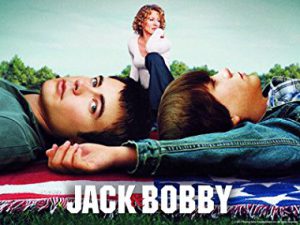
On “Jack & Bobby,” small-town Missouri college professor Grace McCallister (Christine Lahti) is a staunch Democrat. She and her youngest son are at times walking billboards for Kerry-Edwards. To her credit, she feels marijuana should be legal, a stance associated with libertarianism more so than modern liberalism, where the position is muddled (President Obama is not ashamed to admit he has smoked marijuana, but he’s done nothing to cut wasteful Drug War funding).
Meanwhile, Grace’s boss, Peter Benedict (John Slattery) is a Republican. The show seems to take the approach of “Yes, Grace is a Democrat, but she has flaws” and “Yes, Peter is a Republican, but he’s not such a bad guy.” I’d argue that “Jack & Bobby” has a liberal gaze, but it makes genuine attempts to be balanced.
In the flash-forwards to 40 years in the future, a disillusioned Bobby breaks from the Republican Party and runs for president as an independent. Perhaps there is a libertarian reading to be had here, paralleling Gary Johnson’s break from the GOP to run as a Libertarian this year and Paul’s break with the Republicans for the 1988 election. On my first watching of “Jack & Bobby,” the issues that cause Bobby to go independent didn’t jump out at me; it might be worth another viewing.
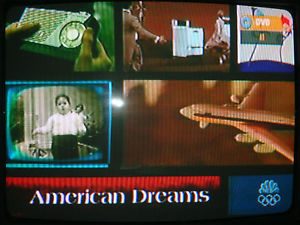
Meanwhile, “American Dreams’ “ third season reflects the libertarian versus statist dichotomy more (although it could still be loosely read as Republican versus Democrat if one is so inclined). Patriarch Jack Pryor — who runs for city office in Philadelphia — is outspokenly pro-government, and his daughter, Meg, is anti-government, participating in Vietnam War protests. But here’s the brilliant twist: When Jack’s son J.J. signs up for the Army, Jack doesn’t want him to join. Ultimately, he supports his son’s decision while discouraging Meg’s protests, but I always got a sense that he is conflicted at his core.
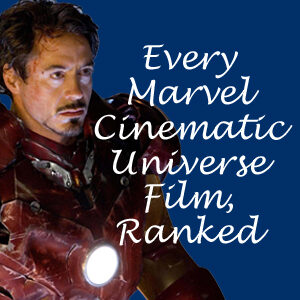
Because “American Dreams” is a historical show, it’s hard to assign political motivations to it. Certainly, it’s anti-Vietnam War, but so is pretty much everyone today. However, it did air at the same time that the controversial Iraq War was going on, and I think it reflected citizens’ mixed emotions nicely while ultimately being anti-war (a libertarian position, certainly, but I doubt that was on the writers’ minds).
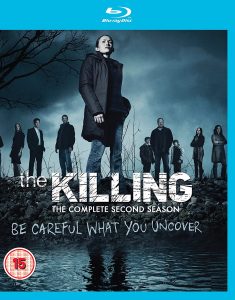
Two notable elections have been playing out on TV recently. On “The Killing” (8 p.m. Central Sundays on AMC), the matchup for Seattle mayor is Dirty Slimeball Politician (Tom Butler’s Mayor Adams) versus Good Politician (Billy Campbell’s Darren Richmond). One would have to dig pretty deep to find a partisan reading here. The storyline is more notable for it’s absurdity — in the span of the final weeks leading up to the election, Darren has been framed for murder by his opponent, wrongly accused of murder, shot and paralyzed, and then has recovered enough to stay in the race, now confined to a wheelchair. (Despite how silly it sounds on paper, I still enjoy “The Killing.”)
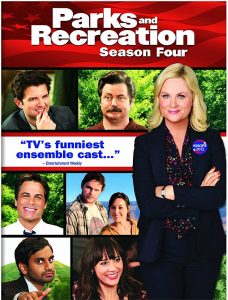
“Parks and Recreation,” on the other hand, gives us some stuff to sink our teeth into. In the season that just wrapped up, the main matchup for the city council seat is Leslie Knope (Amy Poehler), the candidate who deeply cares about Pawnee, versus Bobby Newport (Paul Rudd), heir of a candy fortune who has been groomed for politics; he’s a nice guy, but he’s also a naive (OK, dumb) puppet who doesn’t know or care what’s going on. Using a broad brush, Leslie is probably a Democrat in that she believes that public good can come from a government parks program. And although Mitt Romney is certainly more intelligent than Bobby Newport, in both cases we have someone who has been groomed for politics who is willing to let his strings be pulled.
Although the characters’ political affiliations aren’t mentioned (indeed, they probably don’t belong to parties since this is a local election), the episode “The Debate” arguably re-enforces the old idea that races should be between two candidates and that all third-party candidates are kooks.
The three others vying for the open Pawnee City Council include:
- Festor Trimm (played by the guy who played Buddy Garrity on “Friday Night Lights”), the owner of the Gunbelievable Gun Emporium, who gets a lone cheer from the crowd. He says “I want to tell you about my idea for assault rifle vending machines.” Festor might be a libertarian, in that he strongly believes in the Second Amendment, although he’s marginalized here because of his dangerously extreme view on gun accessibility.
- Brandi Maxxxx, an adult film star, who compares herself to Leslie: “I’ve produced and starred in over 400 adult films — this year alone. And just like Leslie, I know what it’s like to be the only woman in a room full of men.” Maxxxx might be a libertarian, but there’s not much to go on here; she’s possibly apolitical.
- Manrico Della Rossa, perhaps “Parks and Recreation’s” Green Party caricature. His stance: “I believe animals are as important as people, and if elected, I will fight for them as if they are my own children.”
What’s wonderful about “Parks and Recreation” is that Ron Swanson (Nick Offerman) is undeniably a libertarian, and should be celebrated by libertarians the same way gays applauded “Will & Grace” and blacks appreciated “Sanford and Son.”
Yes, Ron is a punchline, but so is every other character on the show, from idealistic Leslie to government bulldog Chris (Rob Lowe). Clips of Ron’s greatest moments include some excellent arguments against Big Government (he effectively explains to a 9-year-old how the government takes 40 percent of her money by eating 40 percent of her lunch) peppered in with moments where he goes too far (he wants to eliminate the Pawnee Fire Department, because he’s put out several fires himself at no cost to the taxpayer). And, of course, his awkward station in life — he believes all governments should be abolished, yet he works for the government, trying to cut reckless spending from within — is an ongoing source of humor.
The “Parks and Recreation” writers and Offerman — who plays Ron as a principled man at his core, despite his flaws — deserve credit for bringing an unambiguously libertarian character to mainstream TV and treating him as being no better or worse than the other characters, just someone with different views.
There have been other shows that can be read as “libertarian.” “Jericho,” about a community recovering after an apocalypse, is mentioned a lot online, as is “Firefly,” about a band of rebels in a future where prostitution is legal and regulated by the state. I’d also throw “Dark Angel” into the mix (In 2019, the economy collapses and America becomes a third-world country overnight, reflecting warnings about the escalating debt, the central concern of libertarians). Now that I think about it, “The Walking Dead” shows a group of people living completely outside of governmental control, so maybe there’s something there, too.
But as far as a character who is obviously and proudly libertarian, a guy who would vote for Ron Paul or Gary Johnson (if he voted), Ron Swanson is a true original on scripted TV.

